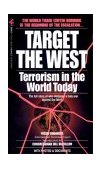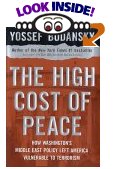|
| Home | About Kashmir Herald | |
Volume 4, No. 6 - December 2004 - January 2005 |
|
| Featured Article |
|
|
|
Reduction in Troop Deployment in J&K With the concurrence of the Cabinet Committee for Security and the Union cabinet, the Prime Minister announced that the number of troops deployed in J&K would be reduced. The reason given is “steady improvement in the ground situation in the state”. Pakistan has been raising the question on all international platforms that India has over-sized military presence in Kashmir and that she should reduce their number. The timing of the PM’s statement is interesting. He had only recently rebuffed a foreign correspondent by telling him that J&K was an integral part of the Indian Union and as such India had the sovereign right to deploy her troops anywhere in the country in any size and strength she required. The PM made the announcement soon after his return from the annual meeting with the EU in The Hague. According to media reports, Dr. Manmohan Singh’s interaction revealed a changed mood in the EU in comparison to what it was in the last annual meeting. In fact a number of member countries expressed their understanding of India’s fight against terrorism and jihadism. By making the announcement of reduction in troops the PM has conveyed a message to the EU to streamline the concept of India as the “strategic partner of the EU”. This could mean balancing the views of the US foreign office in regard to Kashmir since Armitage has come out in support of General Musharraf’s plan for the solution of Kashmir issue. The announcement has come soon after the home minister completed his three-day visit to Kashmir during which he made the assessment of the situation on the ground. In all probability his report could have played the catalyst in taking the decision. The decision has been taken when the autumn is half way on and the mountain passes and peaks in Kashmir are going to receive heavy snowfall. As such major infiltration for next six months is ruled out. A lesser number of troops would be required to deal with the militants already entrenched in the state. During past few months, the militants have received many a shocking setback. Many of their commanders have been killed leading to chaos in their ranks. Only recently a number of them surrendered in Jammu. According to one report, the total number of active armed gangsters is barely 2,000 and this number can be handled by a smaller number of security forces. Rapid increase in the number of informers with much accurate information, the more sophisticated equipment detecting infiltrating and sneaking jihadis and the impact of gradually improving economic conditions of the people all may have contributed to the decision of reducing the number of troops. The anti-terrorism tactics and schemes have come of age in Kashmir. Today the security personnel are better equipped, better trained and better determined to counter terrorist attacks. Some of the battalions could be disengaged and deployed in the eastern part of the country where the situation is grave. The announcement has come after the presidential election in the US is over, and George Bush is in for his second stint in the office. We know that Bush administration has been continuing its gentle persuasion of both the countries to defuse tension and hostility and find an amicable solution to Kashmir issue. Pakistan is convinced that in the changed circumstances, the US is not in a position to force its decision down the throat of New Delhi. The same is true of her approach to Pakistan despite the fact that Pakistan is providing active support in suppressing the Al Qaeda terror. In the event of Washington hardening its stance against Iran -- the other strategic country in the oil rich Gulf region -- by raising the issue of her nuclear weapons programme, she will require Pakistan to maintain substantial military strength on her western border with Afghanistan and Iranian part of Baluchistan. When India decides to reduce the strength of her troop deployment in Kashmir, this will naturally encourage the Americans to insist on Pakistan to disengage some of her troops on Indo-Pak border and re-deploy these on Pak-Afghan border. It seems that General Musharraf has a firm hold on domestic situation in his country. Pakistani economy has stabilized during the four years of military rule. Her foreign exchange reserve has bulged, and her economic growth has attained 4.5 per cent rate, which is not bad in regional context. Therefore the General would like to tell his people that while negotiating a settlement of Kashmir dispute, he is moving in the right direction and that India is responding to his gestures. This helps in reinforcing his official position, which is a combination of civilian and military power a the highest level. But with all said and done, a number of baffling questions remain to be answered. The PM has not indicated the number by which the troops would be reduced. Again, he has not indicated the strategy of withdrawal of part of the troops that stand deployed. A rough estimate of 5 lakh troops deployed in the state is a rather misleading figure. We have various groups of security forces deployed in Kashmir. We have the Army, BSF, CRP, ITBF, the J&K Police, and JK Armed Police etc. These groups have been deployed at various places for various duties contributing to the reduction of violence. The question is which segment of security forces will be withdrawn from which sector, in phases or in one go, etc. Again the question is whether the troops will be withdrawn from the frontline to the rear line or out of J&K territory. Then remains the question of Siachin Glacier. Some months back, the Indian Army Chief, General Vij had categorically indicated that we were not demilitarizing Siachin. India has always stated that her military presence in the northern state is not only Pakistan centric. It is essentially China-centric. Does the announcement of withdrawal of troops mean a changed opinion of Chinese presence in the proximity of Indian border in J&K State? These issues are the concern of military experts also. Therefore the announcement made by the Prime Minister shall have to be worked out in minute details before we jump at the conclusion that with the withdrawal of bulk of Indian troops Kashmir will relapse into chaos and turmoil. (The author is the former Director of the Center of Central Asian Studies, Kashmir University) |
 |
 |
 |
|
|
Archives
| Privacy Policy |
Copyrights
|
Contact
Us | |
||